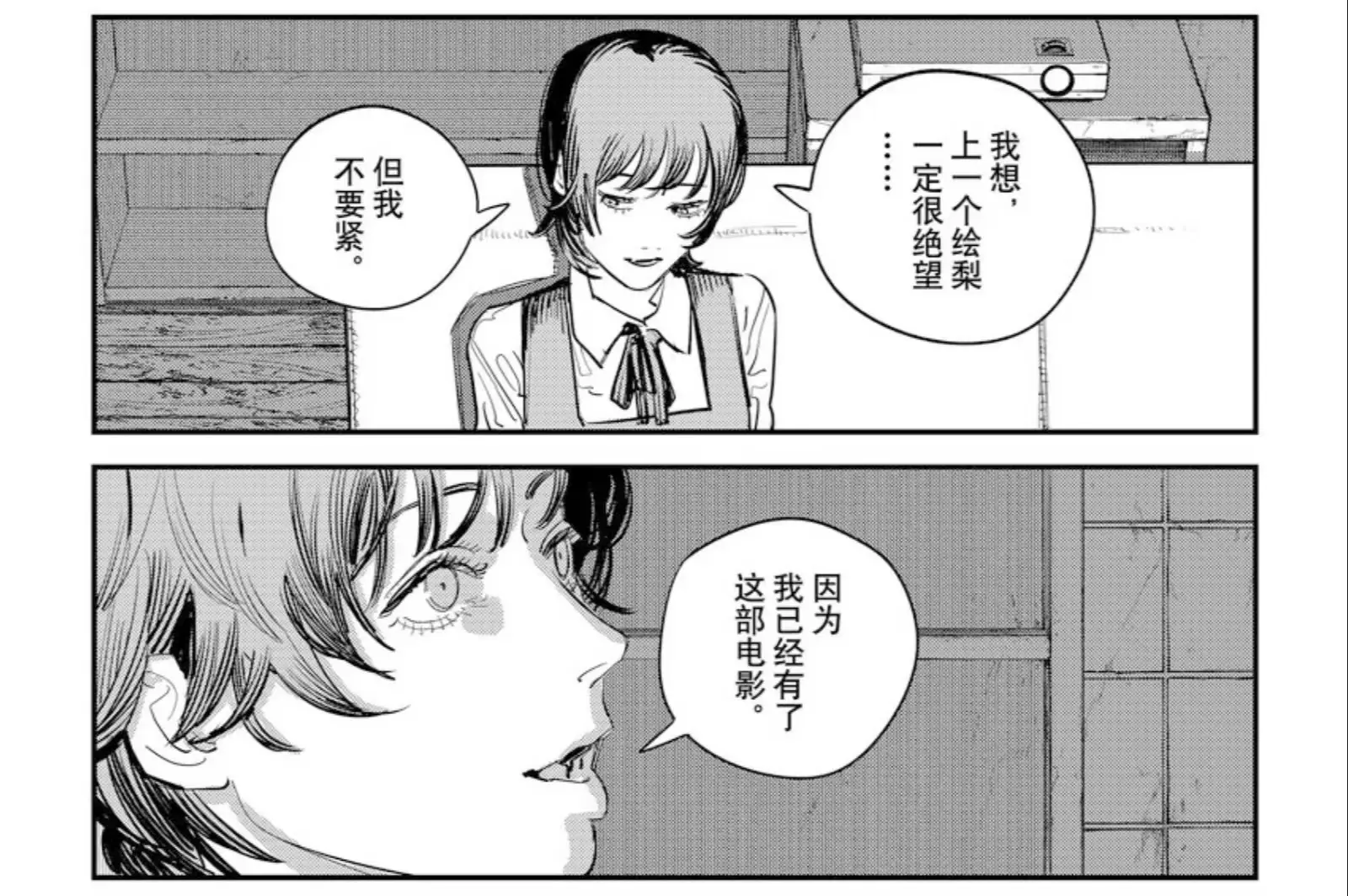Goodbye, Eri: Not Remembering Others, but Knowing Oneself
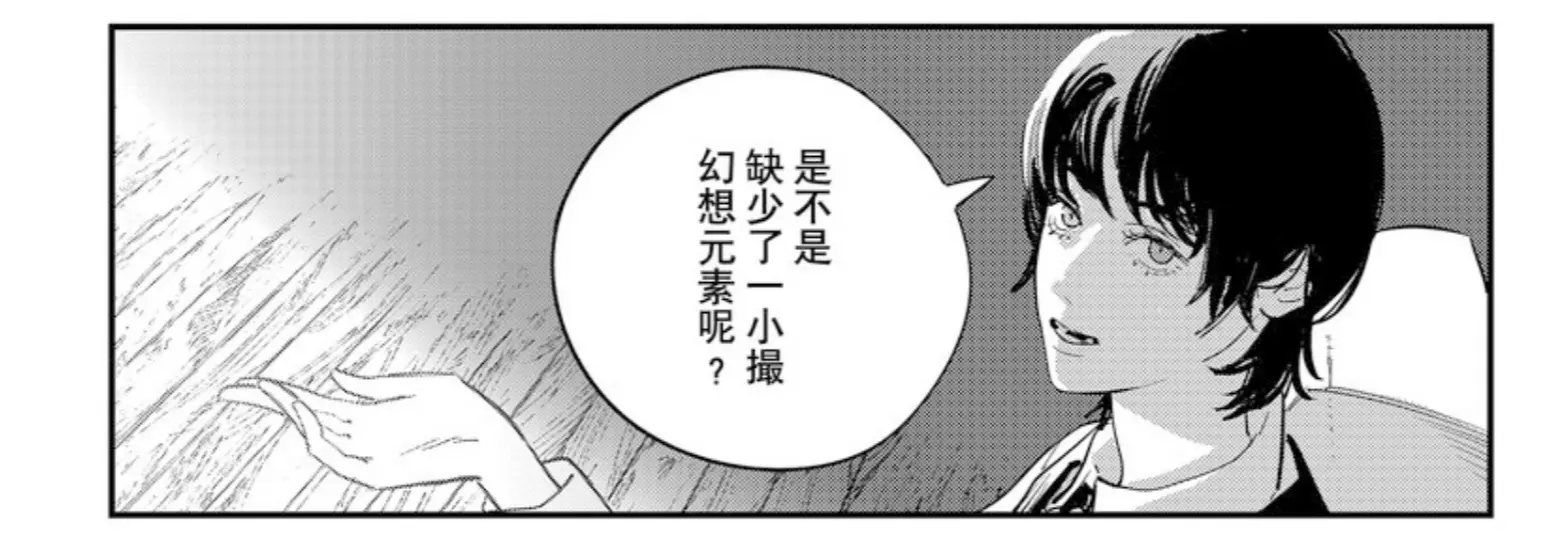
Behind every act of madness lies a resilient and pure heart.
The key to understanding Goodbye, Eri is not seeing how Yuta creates memories but realizing that he was always filming himself.
As the title suggests — Words fail to convey how much effort I’ve poured into loving this world.
In a short story, Tatsuki Fujimoto directed four films, each overturning the purpose of the previous one, blending reality and fiction. It’s essentially a story that demolishes another story, culminating in a complete narrative reversal.
As for this piece—I admire Fujimoto’s values more than his storytelling techniques (including the cinematic style of the manga).
This article will introduce the interwoven stories in the order of film division – subversion – foreshadowing and callbacks.
The First Layer: The Mother’s Film
The first film belongs to the mother.
The protagonist (Yuta)’s mother is diagnosed with cancer and asks her son to film her. In her final moments, the protagonist refuses to visit her and blows up the hospital.
- The protagonist, who creates this film, is considered a lunatic by his classmates.
- A classic “girl meets boy” narrative unfolds—
- Just when Yuta plans to end his life, he meets the heroine, Eri. Eri loves his film and takes him to watch movies, hoping he can one day create a universally recognized film of his own.
The Second Layer: Eri’s Film
Plot Subversion
In the first film, the mother is portrayed positively. In the second film, the mother’s true personality begins to emerge.
At this point, Fujimoto starts reversing all the characters.
Why does Eri like Yuta’s film?
Eri: “Isn’t it cruel for a mother to ask her middle school son to document her final moments in a film? Yet, in your film, she still looks beautiful.”
Why does Yuta’s father appreciate his work?
Yuta’s father: “Yuta, your mother had a terrible temper. Even when you refused to see her at the end, she resented you, yet you portrayed her so beautifully. You have the power to create memories.”
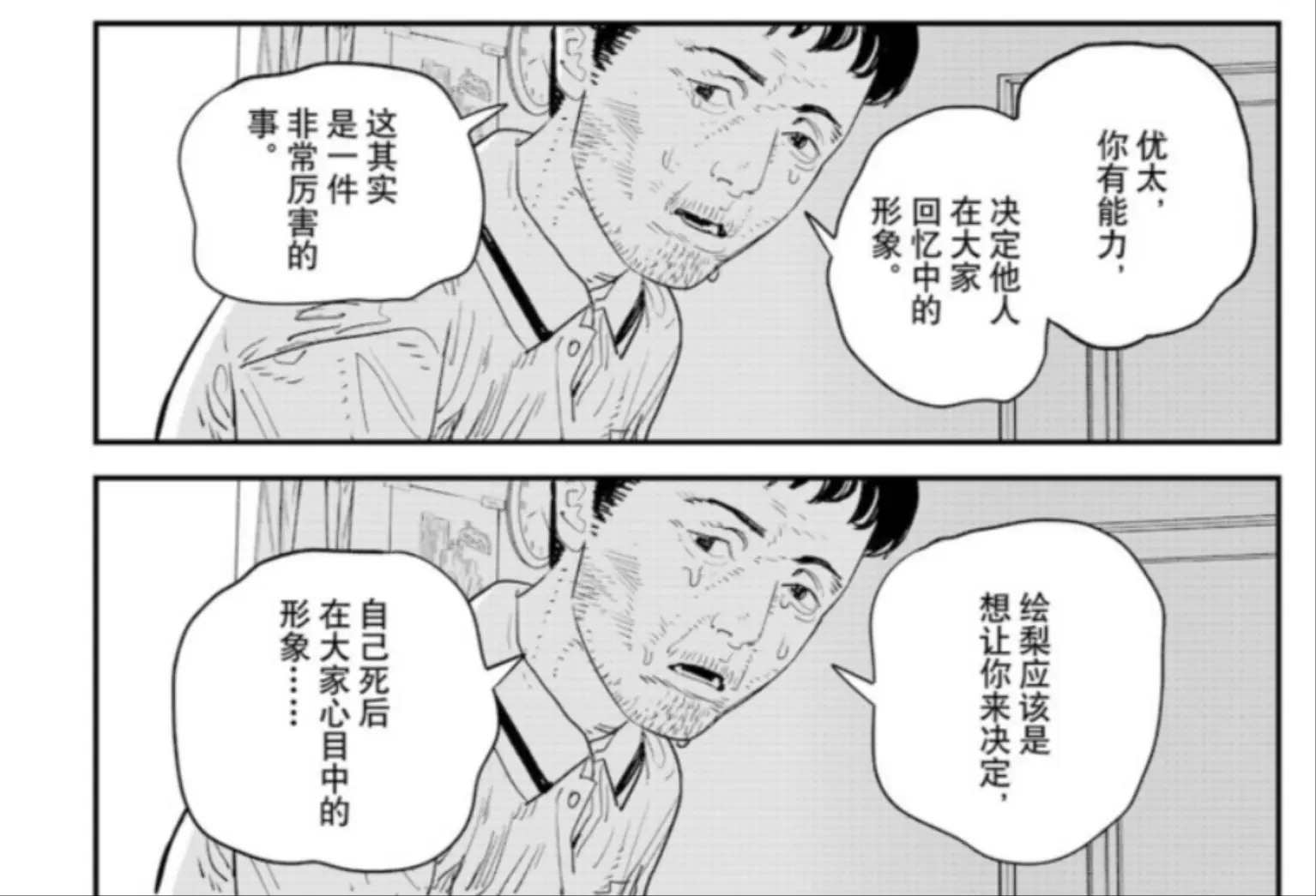
Foreshadowing and Callbacks
Revisit the foreshadowing from the first story—why was Yuta unwilling to visit his mother?
Because he couldn’t bear the emotional weight and sought escape through an explosion. The seemingly absurd plot twist completes the first reversal, raising a profound question: How does one escape pain? By shaping their memories.
Elevating the Narrative
Eri dies, and Yuta’s film about her gains widespread acclaim.
Eri’s friend: “Eri always wore glasses and didn’t have such a great personality. You idealized her too much, but still, thank you. That’s the Eri I’ll remember.”
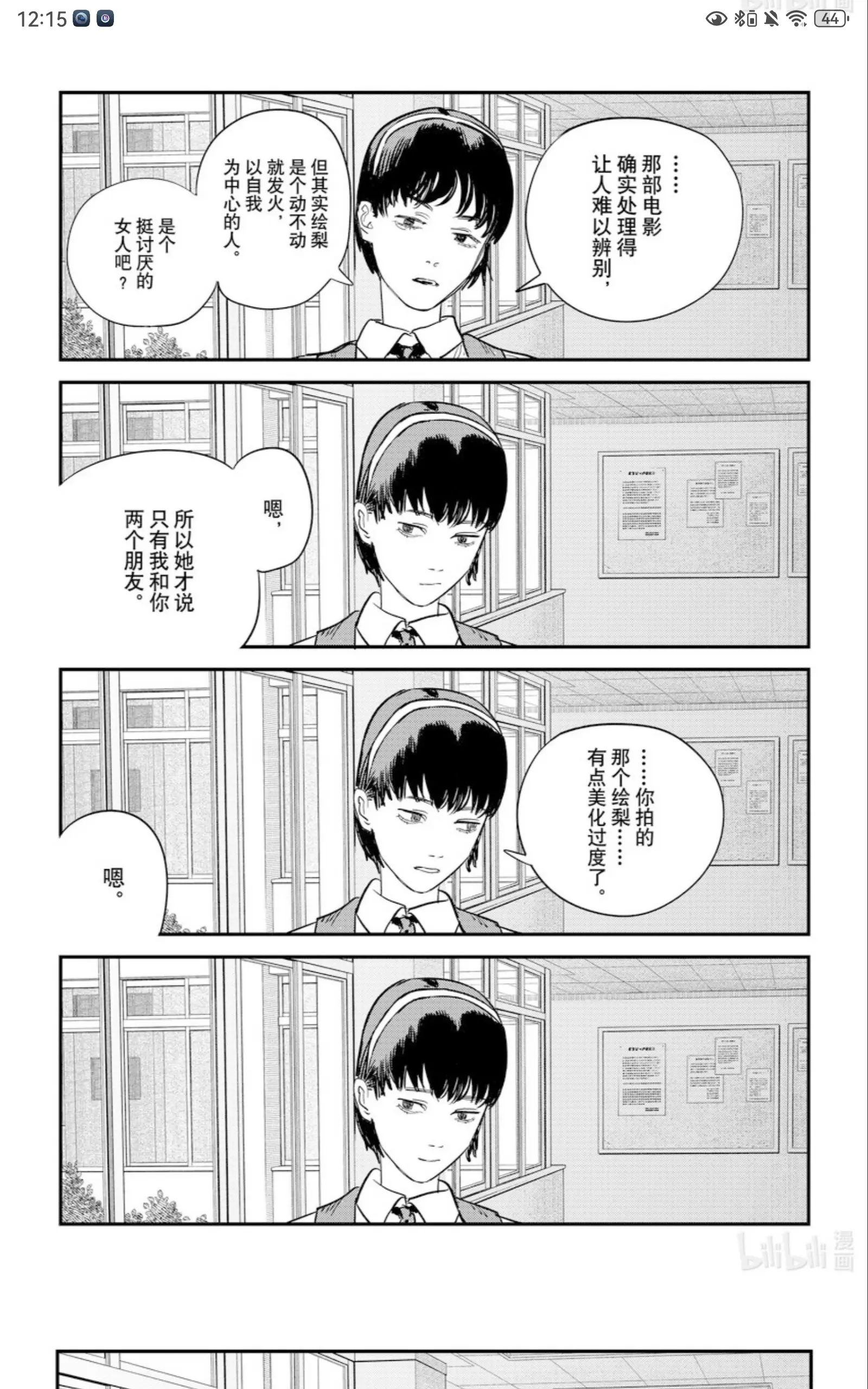
Fantasy is a gift, but also a burden.
The Third Layer: Yuta’s Film
Plot Subversion
Yuta reveals that everything before was just a movie.
Years later, as an adult suffering from misfortunes, Yuta returns to the place where he and Eri once watched movies, intending to end his life, only to find her there! It turns out she’s a vampire. After saying goodbye, Yuta blows up the building.
Foreshadowing and Callbacks
- The first film about the mother captures Yuta’s perception of her.
- The second film about Eri captures Yuta’s perception of her.
- The answer is clear: from beginning to end, Yuta was filming himself.
- More importantly, the entire narrative is about Yuta filming how he perceives himself.
In the second story, Eri once said—“What I want you to film is a movie about yourself, Yuta.”
Thus, the third act can be interpreted as Yuta’s father’s role—because vampires cannot exist in reality.
Yuta’s Film: What Is My Fantasy?
The key to understanding Goodbye, Eri is not seeing how Yuta remembers others but realizing — Yuta was always filming himself 🤧.
The three films are distinct but connected by recurring elements (characters, explosions, death). The manga’s panel design deliberately mimics film reels to echo the thematic message.
Each subsequent film subverts the previous one, and the three together form a complete story. The technique is simple: use the film-making setup to deconstruct characters across segments, ultimately presenting a story about the act of filming itself.
The Three Films’ Explosions
- Mother’s film: Yuta portrays only her best side, adding an explosion as an unconscious response to his fear of her death.
- Eri’s film: Yuta shows only her best side, omitting any explosion.
- Yuta’s film: Adds vampires and an explosion as the final act.
At this point, Yuta finally understands himself. The explosion was his choice, just as he chose to leave only the best memories for his family and friends.
The repetition of explosions across the three films mirrors Yuta’s personal growth.
Why Is Tatsuki Fujimoto a Genius?
- He shows that expressing the sorrow of parting doesn’t require depicting agonizing deathbed scenes; avoiding reality can also be an act of love.
- He demonstrates that cameras deceive, as memories are subjective creations, not objective records.
- He reveals a world beyond the lens filled with death and devoid of fantasy, portraying humans as nothing more than cranky, tantrum-prone kids.
In your darkest moments, after peeling back the layers of your mother and Eri, you finally see Yuta’s truth—
- His mother transforms from a demanding parent into a gentle, caring figure.
- Eri transforms from a grumpy girl with glasses into a kind, understanding friend.
- Yuta fears losing his mother, so he resorts to explosions.
- Yuta fears losing Eri, so he turns her into a vampire.
Reality has no explosions or vampires. The nested stories form a narrative trick—a reflection of how Yuta perceives himself, his growth, and his values.
Life is an inevitably futile struggle. Adding a touch of fantasy is one of our few comforting choices. Isn’t it beautiful to pursue that fantasy, even if it doesn’t exist?
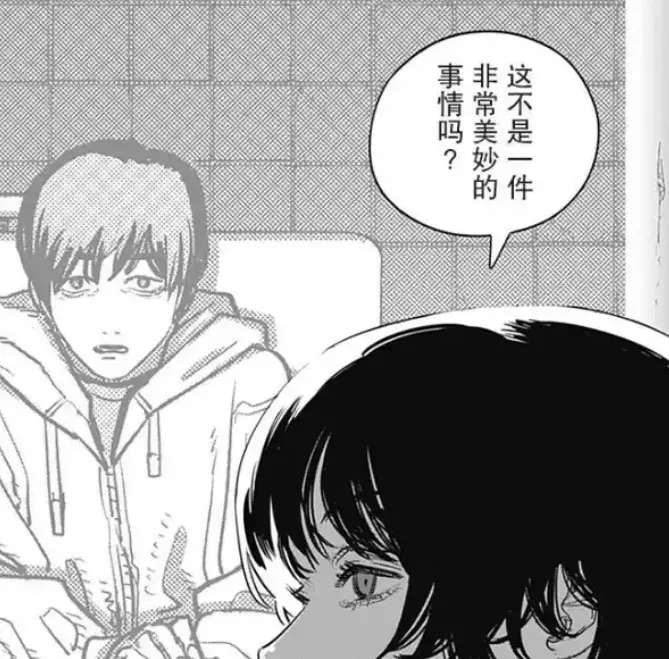
But I won’t be moved by someone’s pursuit of fantasy or insistence on idealism.
In times of economic stagnation, everyone seeks reasons to keep living, which isn’t so different from chasing fantasy.
- I don’t need someone to persuade me to pursue fantasy.
- I need to understand what I’m doing.
Through this story, Tatsuki Fujimoto narrates the quiet process of self-discovery.
A psychologist might choose a warm story to encourage realism.
A madman kicks down the door, barges in, and, after breaking you with grim realities, scams you into believing in fantasies. This is the kind of creator Fujimoto is—a madman.
No matter how cruel the world is, even if through the self-hypnosis of fantasy, please fall in love with it at all costs. This is the hypnosis Fujimoto, the peddler of fantasy films, performs on his readers.
Humans seek nonexistent fantasy to survive—don’t resist this inevitability.
Thus—Yuta sees himself as:
Words fail to convey how much effort I’ve poured into loving this world. Please understand yourself too.
